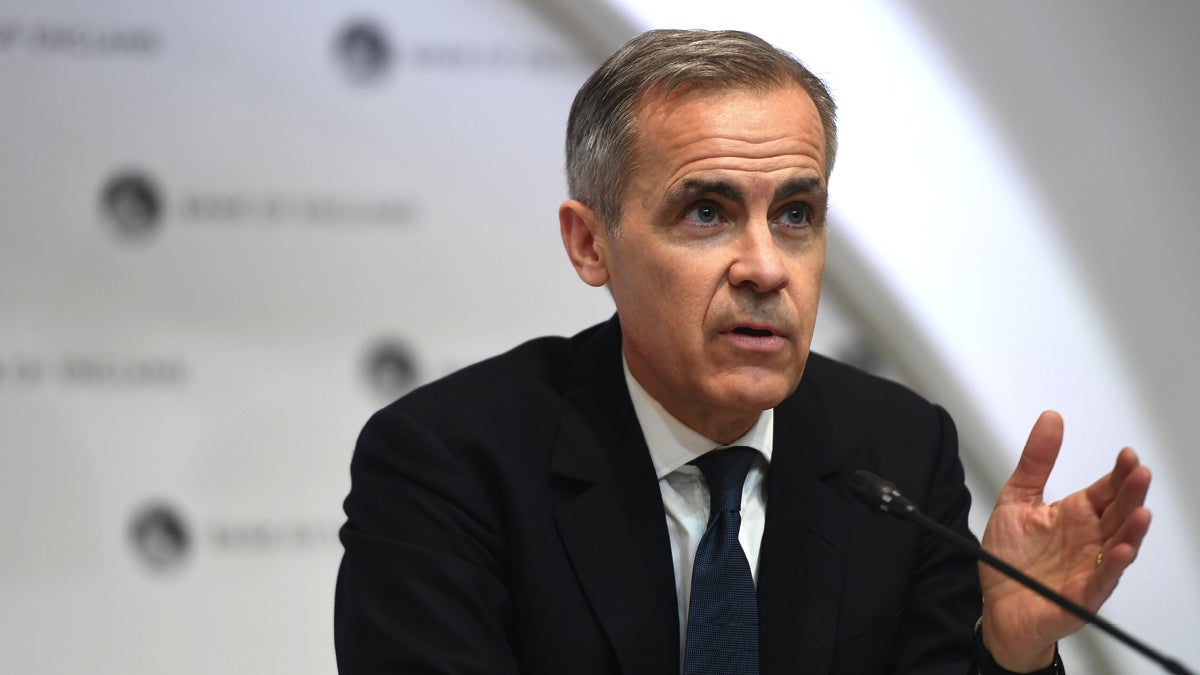
He might be Canadian, but Mark Carney believes his adopted country has a unique opportunity to lead the global financial sector to challenge climate change.
“The UK is very good at financial innovation,” says the former Bank of England governor, who is now the prime minister’s finance adviser for the United Nations Climate Change Conference (COP26) and UN special envoy for climate action.
“When it gets behind what society wants and when it’s aligned, it can do extraordinary things. The UK is the leader in many respects among the 125 countries that are looking to transition to net zero. Finance will play a decisive role in that.”
Carney is setting out a challenge to pension funds. “With people increasingly demanding climate action, those who invest our savings should disclose how closely their portfolios are aligned with the transition to net zero,” he says.
“Some of the world’s largest insurers, pension funds and asset owners, with over $5 trillion in assets under management, have committed to manage down the carbon footprints of their investments by up to 29 per cent, preferably on a scope-three basis [including all indirect greenhouse gas emissions] by 2025 and to be at net zero by 2050. This metrics-based approach will likely become increasingly common.”
Investing pensions to do good
Carney is a supporter of Make My Money Matter. The campaign is aimed at capitalising on the UK’s talent for developing new finance initiatives to help those who are contributing to a pension ensure their money is more likely to be invested in companies and activities that prevent climate change rather than cause it.
“Investors must provide transparent and readily understandable answers when their clients ask whether their savings are being invested in line with the transition to net zero. The challenge to the financial industry is to ‘make a meaningful metric’ so people can ‘make their money matter’,” he says.
By aligning the finance sector with society’s values, Make My Money Matter aims to support the transition of the whole economy towards net zero. “This could turn the existential risks from climate change into the greatest commercial opportunity of our time,” says Carney. “Private finance, including pension funds, will provide the $3.5 trillion needed annually for investments in sustainable infrastructure and fund the innovation and re-engineering of business in every sector of the economy.
“Make My Money Matter and our work for COP26 will help investors disclose how their clients’ money is supporting these investment needs, so people can decide whether their priorities are being met. This will help deliver the world our citizens demand and future generations deserve.”
According to polling by Make My Money Matter, whose founders are film director and co-founder of Comic Relief, Richard Curtis, and Jo Corlett, former adviser to the prime minister and the Department for International Development, more than half (57 per cent) of respondents want to see their pensions go towards building a better future for people and the planet post-coronavirus.
Alongside this, 52 per cent want their pensions to be part of the solution to combating climate change. However, nearly three quarters (72 per cent) of those who have a pension either do not believe or do not know whether their pension investments are in line with their values.
Funds will have to look for new solutions that are consistent with what people want
The UK has been one of the worst affected countries by COVID-19 and this presents a challenge and an opportunity for its extensive, diverse and innovative financial services sector, Carney argues.
“Consumers have been shaken, not just with health concerns, but also concerns about employment,” he says. “All this means companies are going to need to adjust their strategies during a time when the overarching goal is to achieve net zero and people have been standing back and saying, ‘What do we want?’ However, bring these things together and there’s a huge commercial opportunity.”
UK uniquely positioned to become a green finance leader
Next year’s COP26 in Glasgow will further this agenda with the UK financial sector and the country’s investors and savers firmly in the spotlight. “One of the things we’re doing in preparation for COP26 is to work with the industry to figure out ways they can communicate,” Carney explains.
“It’s not just answering questions about specific companies, but looking at whether the totality of the investment, my whole pension fund, is being invested in a way that’s going to solve the problem and move the economy towards net zero.”
Simple box-ticking won’t wash any more, according to Carney, who has also argued that banks should link executive pay to climate risk management. “We don’t just need brown/green; we need 50 shades of green and we need a way to communicate more precisely.”
He describes Make My Money Matter as exactly the catalyst the financial sector needs to help open the door all the way.
“Demands from pension funds and retail investors for more detailed and robust information about the impact of their savings on climate change will force companies in all sectors to demonstrate how they’re transitioning to net zero,” Carney concludes. “As people move their money or express their preferences, funds will have to look for new solutions that are consistent with what people want. That’s what creates the innovation and that’s what creates the jobs and growth of the future.”

He might be Canadian, but Mark Carney believes his adopted country has a unique opportunity to lead the global financial sector to challenge climate change.
“The UK is very good at financial innovation,” says the former Bank of England governor, who is now the prime minister’s finance adviser for the United Nations Climate Change Conference (COP26) and UN special envoy for climate action.
